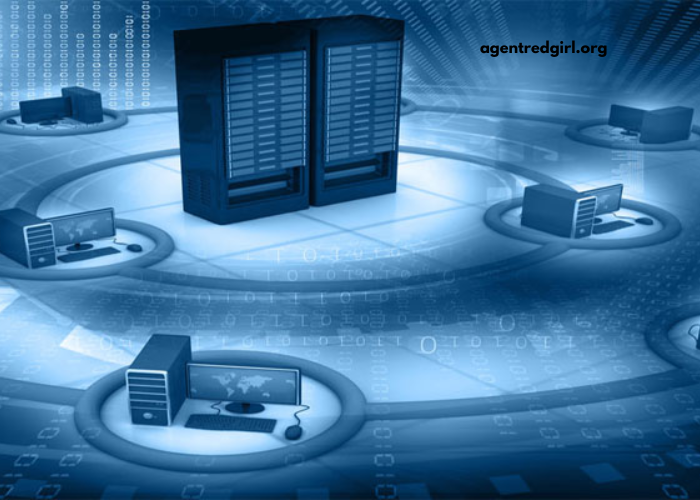In today’s fast-paced digital world, businesses are constantly seeking innovative ways to enhance efficiency, improve productivity, and streamline operations. Technological advancements have proven to be one of the most effective tools for achieving these goals. Whether it’s automating manual processes, optimizing resource management, or leveraging data analytics, technology solutions are transforming the way businesses operate. This article will explore the latest technology solutions for business efficiency, highlighting key trends, tools, and strategies that are helping organizations thrive in an increasingly competitive landscape.
The Role of Technology in Business Efficiency
Technology plays a pivotal role in driving business efficiency across various industries. By automating routine tasks, businesses can free up valuable resources, reduce human errors, and increase overall productivity. Moreover, with the growing need for data-driven decision-making, businesses are relying on advanced technologies such as artificial intelligence (AI), machine learning, cloud computing, and the Internet of Things (IoT) to stay ahead of the competition.
Modern businesses are increasingly adopting digital transformation strategies to stay relevant and meet customer expectations. By leveraging the latest technology solutions, companies can streamline their operations, enhance collaboration, and create more personalized customer experiences. Below, we will explore some of the latest technological innovations that are helping businesses improve efficiency.
Cloud Computing: A Game-Changer for Business Operations
Benefits of Cloud Computing for Business Efficiency
Cloud computing has revolutionized the way businesses manage their operations. By offering scalable and flexible infrastructure, cloud computing allows companies to access powerful computing resources without the need for expensive on-premise hardware. This makes it easier for businesses of all sizes to scale their operations, reduce IT costs, and improve collaboration.
One of the key advantages of cloud computing is its ability to provide businesses with real-time access to data and applications. This allows employees to work remotely, collaborate seamlessly, and access critical information anytime, anywhere. Moreover, cloud-based solutions offer enhanced security, regular updates, and automated backups, ensuring that businesses can focus on growth without worrying about data loss or system downtime.
Key Cloud-Based Solutions for Business Efficiency
- Cloud Storage and File Sharing: Solutions like Google Drive, Dropbox, and Microsoft OneDrive enable businesses to store, share, and collaborate on documents securely in the cloud. These platforms eliminate the need for physical storage devices and reduce the risk of data loss.
- Customer Relationship Management (CRM) Systems: Cloud-based CRM solutions such as Salesforce, HubSpot, and Zoho CRM help businesses manage customer relationships, track sales leads, and automate marketing efforts, thereby improving customer satisfaction and retention.
- Enterprise Resource Planning (ERP) Systems: Cloud-based ERP platforms like Oracle NetSuite, Microsoft Dynamics 365, and SAP Business One provide businesses with integrated solutions for managing finance, supply chain, human resources, and other core business functions.
- Collaboration and Communication Tools: Cloud-based tools like Microsoft Teams, Slack, and Zoom facilitate remote collaboration, ensuring that employees can work together efficiently regardless of their location.
Artificial Intelligence (AI) and Machine Learning: Enhancing Decision-Making and Automation
The Impact of AI and Machine Learning on Business Efficiency
Artificial intelligence (AI) and machine learning (ML) have emerged as powerful tools for enhancing business efficiency. AI refers to the ability of machines to perform tasks that typically require human intelligence, such as problem-solving, decision-making, and pattern recognition. Machine learning, a subset of AI, enables computers to learn from data and improve their performance over time without explicit programming.
AI and ML have the potential to revolutionize various aspects of business operations, from customer service and marketing to supply chain management and human resources. By automating routine tasks and providing data-driven insights, AI and ML can help businesses make more informed decisions, reduce operational costs, and improve overall productivity.
Key Applications of AI and Machine Learning in Business
- Customer Support Automation: AI-powered chatbots and virtual assistants are transforming customer service by providing instant support, answering common queries, and resolving issues without human intervention. This helps businesses deliver better customer experiences while reducing the need for large customer support teams.
- Predictive Analytics: Machine learning algorithms can analyze historical data to predict future trends and outcomes. This enables businesses to make proactive decisions, optimize inventory management, forecast sales, and identify emerging market opportunities.
- Personalized Marketing: AI-powered marketing tools use customer data to create personalized campaigns, improving targeting and engagement. By analyzing customer preferences and behaviors, businesses can deliver tailored content, offers, and recommendations that drive conversions.
- Supply Chain Optimization: Machine learning can optimize supply chain operations by predicting demand, identifying bottlenecks, and recommending the most efficient routes for delivery. This reduces operational costs and enhances overall supply chain efficiency.
The Internet of Things (IoT): Connecting Devices for Smarter Business Operations
How IoT is Revolutionizing Business Efficiency
The Internet of Things (IoT) refers to the network of interconnected devices that communicate and share data with each other over the internet. IoT technology is transforming business operations by enabling companies to gather real-time data from a wide range of devices, sensors, and machines. This data can then be analyzed to improve decision-making, optimize processes, and enhance customer experiences.
IoT has applications across various industries, including manufacturing, logistics, retail, healthcare, and agriculture. By enabling businesses to monitor and manage operations in real-time, IoT can drive significant improvements in efficiency, productivity, and cost savings.
Key IoT Applications for Business Efficiency
- Asset Tracking and Management: IoT sensors can be attached to assets, vehicles, or equipment to track their location, usage, and condition. This allows businesses to monitor their assets in real-time, reduce maintenance costs, and minimize the risk of loss or theft.
- Smart Manufacturing: IoT-enabled machines and devices in manufacturing facilities can communicate with each other to optimize production processes, monitor machine health, and predict maintenance needs. This leads to reduced downtime, improved product quality, and increased throughput.
- Supply Chain Visibility: IoT sensors can track shipments, inventory levels, and warehouse conditions in real-time, providing businesses with greater visibility into their supply chain operations. This enables more accurate forecasting, better inventory management, and faster delivery times.
- Energy Management: IoT-enabled smart meters and sensors can monitor energy usage across facilities, helping businesses identify inefficiencies and reduce energy consumption. This not only lowers costs but also supports sustainability efforts.
Robotic Process Automation (RPA): Automating Repetitive Tasks for Increased Efficiency
The Rise of Robotic Process Automation
Robotic Process Automation (RPA) is a technology that uses software robots (or “bots”) to automate repetitive, rule-based tasks that are typically performed by humans. RPA can be applied to a wide range of business functions, including data entry, invoice processing, payroll management, and customer support.
By automating mundane tasks, RPA allows businesses to free up employees to focus on more strategic and creative work. This leads to improved efficiency, reduced error rates, and faster processing times.
Key Benefits of RPA for Business Efficiency
- Cost Savings: By automating repetitive tasks, businesses can reduce labor costs and increase operational efficiency. RPA can handle tasks 24/7 without the need for breaks or overtime.
- Increased Accuracy: RPA eliminates the risk of human errors in data entry, invoicing, and other repetitive tasks. This ensures that business processes are executed accurately and consistently.
- Faster Processing Times: RPA bots can complete tasks much faster than humans, leading to quicker turnaround times for key business processes. This results in improved customer satisfaction and faster decision-making.
- Scalability: RPA solutions can be easily scaled to handle increasing workloads without the need for additional employees or resources. This makes it an ideal solution for businesses experiencing rapid growth.
Cybersecurity Solutions: Protecting Business Data and Operations
The Importance of Cybersecurity for Business Efficiency
As businesses increasingly rely on technology to operate, the risk of cyber threats has also grown. Cybersecurity is critical for protecting sensitive data, preventing financial losses, and ensuring the smooth functioning of business operations. With the rise of cyberattacks such as ransomware, phishing, and data breaches, organizations must adopt robust cybersecurity measures to safeguard their digital assets.
Investing in advanced cybersecurity solutions not only helps businesses protect their data but also ensures that operations remain uninterrupted. A strong cybersecurity strategy can prevent costly disruptions, safeguard customer trust, and ensure compliance with regulatory requirements.
Latest Cybersecurity Solutions for Business Efficiency
- Endpoint Protection: Advanced endpoint protection solutions, such as antivirus software, firewalls, and intrusion detection systems, help businesses secure devices and networks from cyber threats.
- Encryption: Data encryption tools ensure that sensitive information is securely transmitted and stored, preventing unauthorized access in case of a breach.
- Multi-Factor Authentication (MFA): MFA adds an extra layer of security by requiring users to verify their identity using multiple methods, such as passwords, biometrics, or one-time passcodes.
- Security Information and Event Management (SIEM): SIEM solutions provide businesses with real-time monitoring and analysis of security events, enabling them to detect and respond to potential threats more quickly.
Conclusion
The latest technology solutions are transforming the way businesses operate, driving improvements in efficiency, productivity, and profitability. By adopting technologies such as cloud computing, AI, machine learning, IoT, RPA, and advanced cybersecurity solutions, businesses can streamline operations, reduce costs, and stay competitive in an increasingly digital world.
To succeed in today’s fast-evolving business environment, companies must embrace digital transformation and continuously explore new technology solutions that can drive innovation and enhance operational efficiency. By doing so, businesses will be better equipped to meet customer expectations, adapt to changing market conditions, and unlock new growth opportunities.





